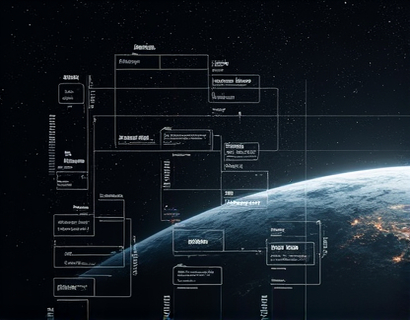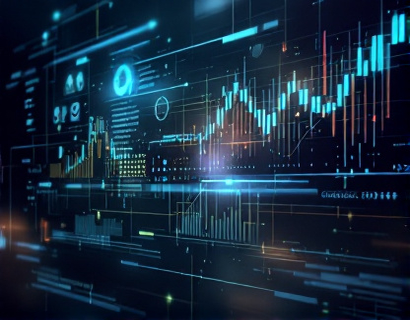Unlocking Market Success in Modern Ecosystems: Navigating Economic Prosperity and Opportunities
The landscape of modern economies has evolved significantly, transforming traditional markets into complex ecosystems where various stakeholders interact in intricate ways. This shift presents both challenges and opportunities for economists, business leaders, investors, and industry experts. Understanding the economic dynamics of these modern ecosystems is crucial for staying competitive and informed. This guide aims to provide strategic insights and detailed analysis to help professionals identify and capitalize on emerging market opportunities.
Modern ecosystems are characterized by interconnected networks of businesses, consumers, technologies, and regulatory frameworks. These ecosystems are dynamic, constantly adapting to technological advancements, changing consumer behaviors, and global economic trends. For instance, the rise of digital platforms has created new market structures where companies like Amazon and Google dominate through network effects and data-driven strategies. These platforms not only sell products but also influence the entire supply chain, from producers to end-users.
Understanding the Core Components of Modern Ecosystems
To navigate these ecosystems effectively, it is essential to understand their core components. At the heart of any ecosystem are the key players: producers, consumers, and intermediaries. Producers create value through goods and services, while consumers demand and utilize these offerings. Intermediaries, such as distributors and platforms, facilitate transactions and enhance market efficiency.
Another critical component is technology, which acts as the backbone of modern ecosystems. Technological innovations drive efficiency, create new business models, and enable data-driven decision-making. For example, blockchain technology is revolutionizing supply chain management by providing transparency and reducing fraud. Artificial intelligence and machine learning are transforming industries by automating processes and offering predictive insights.
Economic Dynamics in Modern Ecosystems
The economic dynamics within modern ecosystems are multifaceted. One key aspect is the concept of network effects, where the value of a product or service increases as more people use it. This phenomenon is evident in social media platforms and marketplaces, where user base growth leads to higher engagement and revenue. Network effects create barriers to entry for new competitors, solidifying the position of established players.
Another important dynamic is the role of data. In today's digital economy, data is a valuable resource that can be leveraged for various purposes, including personalized marketing, operational optimization, and strategic planning. Companies that effectively collect, analyze, and utilize data gain a competitive edge. However, this also raises concerns about privacy and data security, necessitating robust regulatory frameworks to protect consumer interests.
Opportunities for Growth and Innovation
Modern ecosystems offer numerous opportunities for growth and innovation. One significant area is the gig economy, which has surged with the help of digital platforms. The gig economy provides flexible work arrangements and new revenue streams for individuals, while companies benefit from a scalable and cost-effective labor force. However, this model also presents challenges, such as ensuring fair labor practices and social security for gig workers.
Sustainability is another critical opportunity. As environmental concerns gain prominence, businesses are increasingly focusing on sustainable practices and products. This shift not only addresses regulatory pressures but also meets the growing demand from consumers for eco-friendly options. Companies that integrate sustainability into their core strategies can differentiate themselves and attract a loyal customer base.
Strategies for Navigating Modern Ecosystems
To thrive in modern ecosystems, businesses and individuals must adopt strategic approaches. First, embracing innovation is crucial. This involves investing in research and development, exploring new technologies, and fostering a culture of creativity and experimentation. Companies that stay ahead of the curve can identify and capitalize on emerging trends before their competitors.
Collaboration is another key strategy. In complex ecosystems, no single entity can achieve success alone. Partnerships and collaborations can lead to shared resources, combined expertise, and expanded market reach. For example, industry consortia and open-source projects bring together multiple stakeholders to develop standards and solutions that benefit the entire ecosystem.
Adaptability is also essential. Modern ecosystems are characterized by rapid change, and businesses must be agile to respond to new challenges and opportunities. This includes being open to pivoting business models, entering new markets, and adjusting strategies based on real-time data and feedback.
Case Studies of Successful Navigation
Several companies have successfully navigated modern ecosystems, serving as valuable case studies. Tesla, for instance, has revolutionized the automotive industry by integrating electric vehicles with advanced technology and a direct-to-consumer sales model. By focusing on innovation and customer experience, Tesla has disrupted traditional car manufacturers and established itself as a leader in the electric vehicle market.
Another example is Airbnb, which transformed the hospitality industry by leveraging the sharing economy. By connecting travelers with local hosts, Airbnb created a platform that offers unique experiences and cost-effective accommodations. The company's success is attributed to its strong brand, user-centric design, and ability to adapt to regulatory challenges.
Challenges and Risks in Modern Ecosystems
While modern ecosystems offer numerous opportunities, they also come with significant challenges and risks. One major challenge is the intense competition driven by network effects and economies of scale. New entrants face high barriers to entry, making it difficult to disrupt established players. Additionally, the rapid pace of change requires continuous investment and innovation, which can be resource-intensive.
Regulatory risks are another concern. As ecosystems grow, governments and regulatory bodies are increasingly scrutinizing practices related to data privacy, antitrust, and consumer protection. Companies must navigate this evolving regulatory landscape to avoid legal issues and maintain public trust. Failure to comply can result in hefty fines and reputational damage.
Future Trends and Predictions
Looking ahead, several trends are likely to shape the future of modern ecosystems. The integration of the Internet of Things (IoT) will further enhance connectivity and data collection, enabling more sophisticated services and automation. Quantum computing holds the potential to solve complex problems that are currently intractable, opening new frontiers in fields like cryptography and optimization.
Sustainability will continue to be a driving force, with more businesses adopting circular economy models and investing in renewable energy. The rise of decentralized technologies, such as blockchain, may also reshape how value is created and distributed, reducing reliance on centralized intermediaries.
Conclusion
Unlocking market success in modern ecosystems requires a deep understanding of their economic dynamics, strategic approaches to growth and innovation, and the ability to navigate challenges and risks. By embracing change, fostering collaboration, and focusing on sustainability, businesses and individuals can capitalize on the vast opportunities presented by these dynamic environments. As the landscape continues to evolve, staying informed and adaptable will be key to long-term prosperity.










































